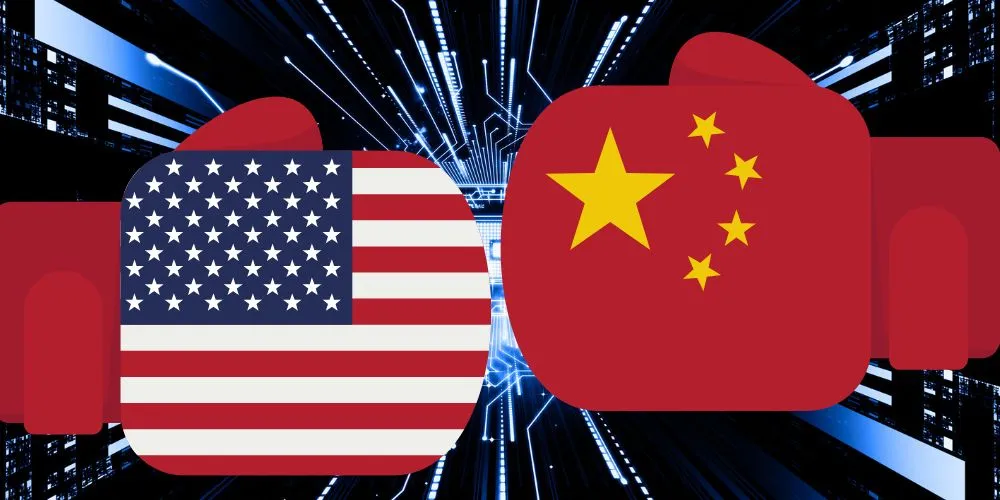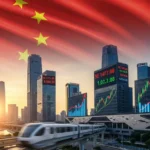Key Points:
- Anticipated U.S. legislation aims to compel ByteDance to divest ownership of TikTok, citing national security concerns.
- The U.S. is intensifying scrutiny on Chinese firms across multiple sectors, including semiconductors, EVs, and biotechnology.
- U.S. investigations into Chinese imports aim to prevent data security risks and limit Chinese influence in critical sectors.
- China condemns U.S. actions as unjustified suppression and advocates for fairness and competition in global markets.
Steven Okun, CEO of consultancy APAC Advisors, predicts that the U.S. will escalate measures to mitigate competition from China, signaling a deepening of the economic decoupling between the two countries. Okun highlighted the impending legislative actions to counter China Influence, particularly exemplified by recent developments surrounding TikTok’s ownership.
Lawmakers recently voted unanimously to advance a bill requiring ByteDance, the parent company of TikTok, to divest its ownership of the popular video-sharing app or face a potential ban in the U.S. House Speaker Mike Johnson affirmed that the bill would undergo floor deliberations, emphasizing national security concerns linked to Chinese ownership of TikTok.
According to the Select Committee on the Chinese Communist Party, TikTok’s affiliation with ByteDance poses significant national security risks due to potential collaboration with the Chinese Communist Party. This legislative move reflects a broader strategy of reducing China’s access to the U.S. market and promoting domestic alternatives.
The U.S. has been increasing pressure on Chinese firms across various sectors, including semiconductors, electric vehicles (EVs), and biotechnology. Recent Senate approval of a bill targeting Chinese biotech companies underscores growing apprehensions regarding national security risks associated with Chinese entities.
Regarding the auto industry, China’s emergence as a formidable competitor has raised concerns in the U.S., particularly regarding the potential influx of Chinese electric vehicles into the American market. Energy Secretary Jennifer Granholm expressed concerns about China’s dominance in the EV sector, citing potential risks to U.S. industry and infrastructure.
The U.S. administration’s scrutiny extends beyond TikTok and EVs, encompassing broader investigations into Chinese imports to assess national security implications. Such measures aim to safeguard sensitive data and prevent Chinese entities from exerting undue influence on critical sectors.
In response, China’s Foreign Minister Wang Yi condemned the U.S.’s escalating restrictions, accusing the U.S. of unfair practices and unjustified suppression. Wang criticized the U.S.’s efforts to monopolize high-tech industries, advocating for fairness and competition in the global market.
The U.S.’s strategic approach involves tightening regulations on Chinese access to advanced technologies, including semiconductor chips and AI exports. These measures reflect broader geopolitical tensions and underscore efforts to safeguard U.S. economic interests amidst growing competition from China.





